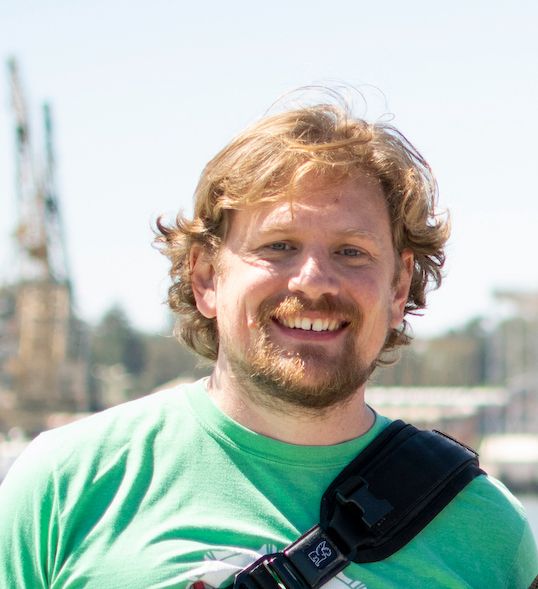VALLEJO – A Solano County Superior Court judge indicated last week that he will not enforce some elements of a stipulated judgment between the Vallejo Police Department and the California Department of Justice, and may not approve the document at all.
Judge Stephen Gizzi wrote in an order to show cause filed Friday that he found no legal support for the Justice Department’s plan to appoint an evaluator to oversee the Vallejo police reform work. He objected to acting as a mediator in disputes between the Justice Department and the city, saying it would give him undue power over policing in Vallejo.
“This court was never asked if it was willing or able to take on this role that could potentially last up to 10 years,” Gizzi wrote. “Yet, without authority to do so, the commitment was made on behalf of the court.”
Gizzi also wrote that he found other portions of the 67-page stipulated judgment filed by the Justice Department last month to be vague, contradictory, or unsupported by law, and indicated that he would not enforce large portions of it, including proposed reforms of stops and searches. While the agreement set milestones for compliance, Gizzi found there were “no meaningful timelines established” and what full compliance means was not defined.
Gizzi ordered the Justice Department and the city to legally justify their proposal during a hearing next month. If he remains unconvinced, Gizzi could set aside the stipulated judgment and consider only a seven-page complaint by the Justice Department seeking relief.
Justice Department officials did not immediately respond to a request for comment.
Attorney General Rob Bonta announced the stipulated judgment at a press conference at Vallejo City Hall last month. “We have accountability components here where the court and the evaluator will both help ensure the implementation of the recommendations here and the changes going forward,” Bonta said during the press conference.
Bonta’s move to file a stipulated judgment, also known as a consent decree, followed a three-year contract with the city that started in 2020. Vallejo, in the midst of public controversy over a string of shootings and other violent incidents, was required to complete 45 reforms in three years. But by the end of the term in June, the city had completed only 20, according to Bonta.
The required reforms include numerous revisions to policy and training. The outstanding recommendations include finding a new police headquarters, which has been a contentious issue, adding more civilian staff, adding promotional opportunities and mentoring for female officers and racial minorities, assigning officers to beats, and establishing a police oversight model, which was passed by the City Council in December but has not been implemented.
The new reforms include conducting an ongoing audit of incidents where an officer points a firearm. Others are intended to reduce bias when officers stop and detain people by limiting the use of pretextual stops and placing limitations on when officers can search people during consensual encounters.
But in his order last week, Gizzi indicated that he would not impose any limits on pretextual stops nor consensual searches.
“The court will not approve an agreement that does not allow officers to make a search based on informed consent,” Gizzi wrote. “If you do not have officers who can be trusted to carry out these tasks within Constitutional boundaries, they should not be on the force.”
Gizzi fundamentally objected to the Justice Department’s plan to appoint an evaluator, who would monitor the pace of reforms and file reports, and expressed confusion whether the evaluator would report to the Justice Department or to him.
According to the agreement, the Justice Department and city would meet to choose an evaluator together. If any disputes came up during the course of the reform work, they would be handled by the court.
But Gizzi objected to the court’s role in resolving disputes and wrote that it did not fit with other models for handling court oversight. “The court does not recall being asked if this was a new service it was providing nor for permission to include this in the agreement,” he wrote.
Gizzi wrote that he was uncomfortable making decisions for the police department because it could contradict the separation of powers and felt it could be overstepping his authority as a judge.
“In the situation the court faces here, it is being asked to assume final word over future decisions concerning the continuing operation of the Vallejo Police Department, a core function of a nonjudicial branch of government,” he wrote. “The city, not the court, has inherent police powers.”
Gizzi wrote that he could issue an injunction placing “guardrails” on the city’s decisions regarding the police department, but “this is significantly different from the court itself directly or indirectly making a potentially broad array of future decisions regarding operation of the Vallejo Police Department.”
He acknowledged that there were some circumstances when the court might exercise control over the operations or practices of a defendant, such as when it appoints a receiver to take control of and manage property. But he said that in a receivership, he would give the receiver broad powers to oversee the court’s interests and would only occasionally review the scope of the receiver’s powers, rather than being involved in direct decision making.
While Gizzi left the door open for approving an agreement in the case, any agreement he approves would look very different than the one announced by the Justice Department last month, and would almost certainly exclude key reforms. Gizzi set a hearing for Dec. 13 to hear arguments on whether he should approve the agreement.
Before you go...
It’s expensive to produce the kind of high-quality journalism we do at the Vallejo Sun. And we rely on reader support so we can keep publishing.
If you enjoy our regular beat reporting, in-depth investigations, and deep-dive podcast episodes, chip in so we can keep doing this work and bringing you the journalism you rely on.
Click here to become a sustaining member of our newsroom.
THE VALLEJO SUN NEWSLETTER
Investigative reporting, regular updates, events and more

Scott Morris
Scott Morris is a journalist based in Oakland who covers policing, protest, civil rights and far-right extremism. His work has been published in ProPublica, the Appeal and Oaklandside.
follow me :




